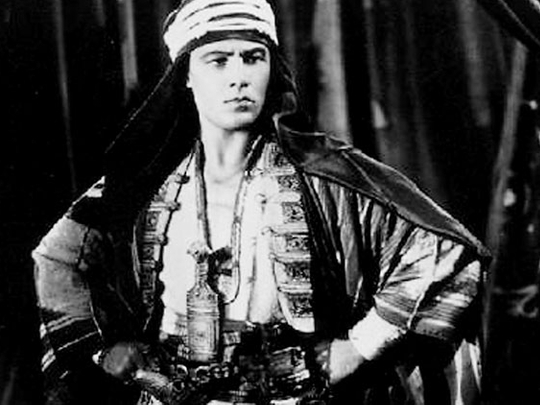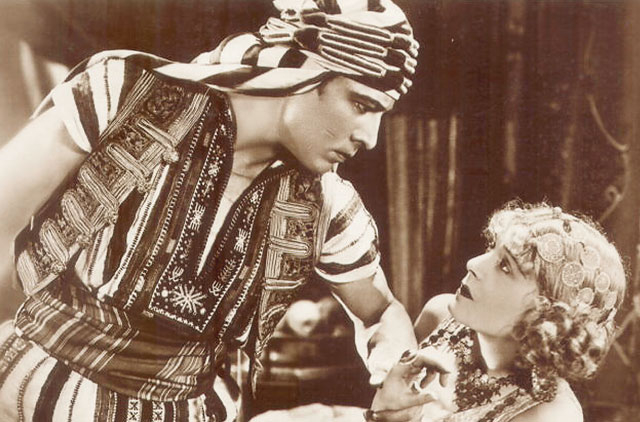
One may ask does orientalism deserve intensive efforts to study books written by orientalists and open a dialogue with them?
Of course, yes it is worthy, provided we know exactly how to study and examine their methods and respect the other's mentality, culture and thoughts without fanaticism.
We must also be aware of what to take and what to leave behind within the framework of a sophisticated and civilised human interaction.
Orientalists gathered Arabic manuscripts, indexed them and got what they deemed necessary for their studies and research. They also published them and printed a large number of Arabic books in history, literature and religion.
They translated numerous Arabic publications and authored dictionaries and grammar books to help Westerners learn them, which they also did for non-Arabic Islamic books.
This way, they introduced our culture to the West and gave Western researchers access to our original texts along with their translations. Orientalists also taught thousands of Arab and Muslim scholars, who later took what they learnt to their homelands and enriched their cultures and ways of thinking.
Orientalists further wrote thousands of books and tens of thousands of researches and articles about the Arab and Islamic world, which many of our teachers still rely on, whether they admit it or not.
Accordingly, the orientalist intellectual production deserves care and attention, since we can benefit from orientalist methods in developing our own approaches and styles.
There is no doubt that we can derive new opinions about our history from studying the ideas of orientalists and can benefit from those opinions to clarify our ideas and amend our methods.
We can also see ourselves through the works of other scholars and researchers.
The old tendency to label all these different studies as orientalism is ebbing, and even the term "orientalist" is not favourable anymore. Some prefer the term "Arabist", while many are sensitive to the word orientalist, since it had been used within the context of the European-Eastern confrontation and the problem of knowledge and complicated and interlinked powers.
Today, very few may like to be viewed as orientalists because for most of them the word is disappearing in academic and scientific mediums, while other words are taking over, especially those referring to a certain speciality. Most anthropologists, linguists, phoneticians, Islamic historians and even specialists in Quranic studies prefer not to be referred to as orientalists, contrary to what was common in the 19th and early 20th centuries.
There had always been vast differences between the concerns of the French and British on one side and the Americans on the other, when it comes to oriental studies and their fields.
Orientalism was originally, and till the Second World War, a British-French cultural project. This project was so huge that it covered the entire east up to India and also included various topics such as scientific research, religions and sects, folklore, anthropology, spice trade and even colonial armies and the governments that had been subdued, plus a long list of other topics that reveal the variety in interests.
However, this interest remained confined to Britain and France until the Second World War, when the United States managed to control the East and play the earlier role played by the other two states.
Nevertheless, the connection between the East and West was fertile and reaped great benefits, which form the scientific material for what we now call orientalism.
It is worth mentioning that the West, which may have coined the word "orientalism", tends to stereotype when it comes to the East, although orientalists can be classified into different categories.
One of the leading orientalists specialised in Arab and Islamic Studies, Maxim Rodinson, explained this dilemma.
The writings of Rodinson contributed towards attempts to reconsider and clarify social, cultural and political problems related to the Arab past and present, although many orientalists disagreed with Rodinson.
Among them was Edward Said, whose book Orientalism discusses some approaches and opinions related to the previous march of the Arab civilisation and the present challenges facing contemporary renaissance and ways to tackle them.
Rodinson views orientalism as a weak term which was the result of generalisation in viewing the variety of subjects and the unfair classification of these topics, which resulted in putting them together within one speciality.
This is an indication of the way the term was derived, and how it does not indicate one subject with one direction, and according to Rodinson, there is no such thing as orientalism. There are only orientalists, or orientalist currents.
As for the thought that colonial expansion was and still is the target behind orientalism, Rodinson believes it was much more complicated than this hasty judgment.
According to him, orientalism was not a science, since oriental studies were formed by a variety of currents, and if we look at the beginning, we would find that oriental studies resulted from the interest of some researchers in Islam from a Christian perspective.
This interest had to wait until the 19th century, when orientalism was established by enthusiastic individuals who were not completely objective, because this is impossible.
Rodinson says these individuals tried their best to be objective, and accusing them of acting as a prelude to colonial expansion is an oversimplification of the issue, and is absolutely wrong.
Here, Rodinson recalls Silvestre de Sacy, who wrote two volumes titled Chrestomathie Arabe (Arabic Chrestomathy), in which he gathered passages by many Arab authors to help foreigners learn the Arabic language, and wonders whether he was serving colonial expansion in the Arab world by doing so.
Rodinson then explains that de Sacy's work could obviously help some colonial officials to learn Arabic, but most of them did not bother to do so, and even ridiculed the idea, yet there is still a space for the permanent emergence of objectivity, even in ideological societies.
To this effect, orientalists were classified into different categories. Some of them were interested in studying chrestomathy and similar studies, with no concern as to where these studies may lead.
Meanwhile, other orientalists from France, Germany and the United Kingdom considered it a must to serve their nations, and some of them did their best to do so, while some did it with careful consideration and criticism.
When they were asked for a political opinion, which is a rare occurrence, they gave it, and since many of them lacked comprehensive and enlightening ideas, they used the common ideas prevailing at their age.
These ideas imply that colonialism is good for everyone, especially colonised people.
Those orientalists did not really pay enough attention to real problems and issues, and their ideas were within the framework of common ideologies during their time.
In short, when they spent their lives writing Turkish language dictionaries or translating the poems of Al Mutanabbi, their acts were not directly aimed at serving colonial interests.
However, portraying orientalists as a group with exceptional powers or tools of colonialism and scolding them, or scolding Arab intellectuals for using orientalism methods, is very strange.
Rodinson adds that orientalists were the ones to scrutinise the best methods in an objective way to establish an analytical history. They were also the ones who taught criticism of texts.
Despite Ibn Khaldun's methodical criticism of history as told, no one pushed Arab intellectuals in a regulated and systematic way towards analytical history like European methods when Arabic books were republished.
This was not due to European supremacy but because the economic, social and political circumstances of their age allowed them to make scientific progress before this happened to other cultures.
Of course, there were fluctuations and things were not always done right.
Many of their ideas can be criticised because of shortsightedness, lack of enlightened ideas and repetition of common ideas, among others.
However, they were in a way exemplary.
The main occupation of orientalists was research and study, and in general they were not interested enough in the Islamic world. Most of them never set foot in this part of the world, except a few elderly French orientalists who taught in Algerian schools, for example.
German Orientalist Theodor Noldeke, who was considered the greatest by Rodinson, used to say the East to him meant Vienna. He simply never travelled further than Vienna towards the East.
Rodinson's testimony, despite our disagreement about some parts of it, remains an important and genuine testimony by an orientalist. The Westerners who study Eastern civilisations and become scholars turn into supporters for Eastern glory and its civilisation, culture and religions.
This is because people like what they know and dislike what they do not know.
Romanian orientalist Dr Nadia Anghelescu was not too happy with the term either. Anghelescu said during her visits to Arab countries, she was referred to by newspapers as a Romanian orientalist, which she objected to repeatedly.
One of the main reasons for her objection was that the orientalist character was deemed a jinx in the Arab world, especially after Edward Said's famous book Orientalism: Knowledge, Power, Establishment was Arabised in Beirut in 1981.
In her testimony, Anghelescu refers to the concepts that should be dealt with in this cultural dialogue. She says the East, West, North and South are just relative concepts, such as this, that, you and I.
Accordingly, and from this point of view, we conclude that many Europeans use the term "Eastern literature" to refer to any literary work outside Europe, with the exception of North American works which are of a European origin.
The attention given to this literature, which increased during the Romantic period, was a result of the Romanticists' interest in various peoples and cultures. It was also part of the European cultures' interest in defining themselves out of defining the other and their interest in "wonders", just like tourists, according to Anghelescu.
Europeans moved their interest from particulars to what is in common in terms of aesthetic values between the East and the West.
There are many clichés in the European perspective of Eastern letters, and to many of them Eastern imagination means the Arabian Nights but cultural dialogue makes it a must to respect the side presented to us by another culture.
This is why when French orientalist Gaston Wiet wrote a book about the history of Arabic literature, he stressed in his preface that Arabic literature is not the Arabian Nights and that the reader will not find a reflection of Arab heritage and customs in the famous storybook.
There are many people who started learning Arabic at a relatively late age, then made it the main object in their lives, including Romanian Timothy Shiparo, who lived in the last century and was one the leading Romanian language linguists.
He studied Hebrew and then Arabic and got attached to the Arabic language and collected a large number of reference books and valuable manuscripts in his secluded home in Transylvania. He also read Arabic books until he went blind.
When asked about orientalism as a prelude to occupation, orientalist André Miquel, holder of the Arabic literary chairs of the Collège de France, used to say that he had no idea what orientalism meant.
Miquel would repeatedly say that orientalism historically means someone from the West carrying out research about the East, which may be the Arab world or China.
However, it was Arabic literature that charmed Miquel and turned him into a self-confessed Arabist who studied Arabic literature out of passion.
Ammar Al Sanjari is a Senior Researcher in Abu Dhabi Authority For Culture and Heritage (ADACH).



